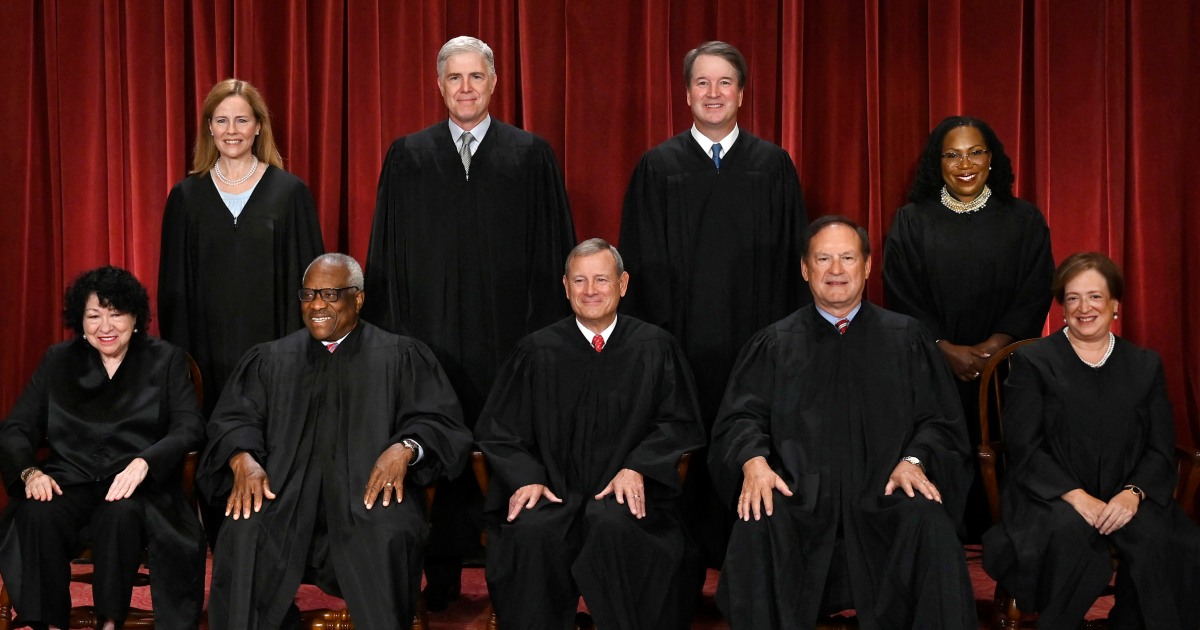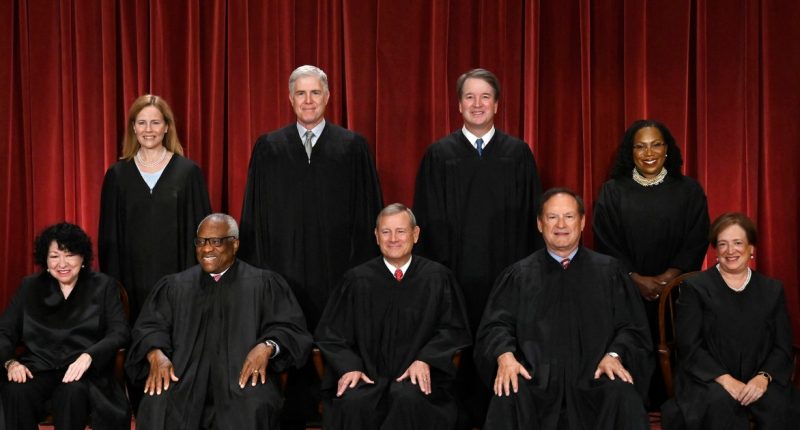
WASHINGTON — A 40-year-old Supreme Court precedent that over the years has become a bugbear on the right because it is viewed as bolstering the power of federal agencies could be on the chopping block as the current justices on Wednesday consider whether to overturn it.
The court, which has a 6-3 conservative majority skeptical of broad assertions of federal agency authority, is hearing oral arguments in two related cases involving a fisheries regulation that call into question whether the 1984 ruling in Chevron v. Natural Resources Defense Council should be consigned to history.
Ironically, at the time it was decided, Chevron was a win for the deregulatory efforts of the Reagan administration, with the court ruling that judges should defer to federal agencies in interpreting the law when the language of a statute is ambiguous.
The ruling allowed the Environmental Protection Agency to move forward with a Clean Air Act regulation that was favorable to polluting facilities, much to the displeasure of environmental groups that had wanted the court to give the agency less leeway.
During that period, the EPA was led by Anne Gorsuch, the mother of current Supreme Court Justice Neil Gorsuch, although she had left the post following a scandal over the agency’s management of pollution cleanups by the time the case was argued. Justice Gorsuch has been an outspoken critic of the Chevron ruling.
In practice, the decision meant that both Democratic and Republican presidents could take advantage of the flexibility it gave to agencies in implementing new regulations on a wide range of issues.
Decades later, with business interests and conservatives more hostile than ever to what they call the “administrative state,” the precedent came to be seen at least on the right as being more beneficial to progressives, who want to make aggressive use of federal agency power, than it is to conservatives.
“Really, the mission on the other side is to make it very, very hard to pass laws that create effective programs that meet modern problems. The real goal is [to] diminish the power of the federal government,” said David Doniger, the environmental lawyer who argued and lost the 1984 case.
Environmental groups and others on the left hope to keep the ruling in place so agencies can tackle difficult issues like climate change, especially in the absence of Congress’ passing major legislation itself.
Jonathan Adler, a professor at Case Western Reserve University School of Law, said there were always disagreements among lawyers and academics over how courts should apply the Chevron ruling.
“This has been bubbling around for a while, but certainly on the right there is a concern that … agencies are not so much faithfully executing Congress’s instructions as they are trying to figure out ways of doing what they want to do,” he said.
But, he added, “the question is whether you need to overturn Chevron to arrest that dynamic.”
The Supreme Court has already addressed the issue of agencies’ exerting broad power without clear congressional instructions from another angle in recent rulings that struck down President Joe Biden’s federal student loan debt relief plan, blocked his Covid vaccination or test requirement for larger businesses and curbed the EPA’s authority to limit carbon emissions from power plants.
Those cases did not rely on the Chevron analysis but instead said simply that on issues of broad national impact, there needs to be an explicit authorization from Congress, an approach known as the “major questions doctrine.”
Both of the cases being argued Wednesday involve a challenge to a less far-reaching government regulation that would require fishing vessels to help fund the collection of scientific data to assist with fishery conservation and management.
The court took up appeals brought by operators of fishing vessels active in the herring fishery off the Atlantic coast, which challenged the 2020 rule applying to New England fisheries. Lower courts in both cases ruled for the federal government.
The challengers say the National Marine Fisheries Service, the federal body that oversees ocean resources, did not have authority to issue the regulation under the relevant law, the 1976 Magnuson-Stevens Fishery Conservation and Management Act.
The rule implements a monitoring program that vessel operators are required to fund. The challengers assert that operators would have to pay up to $710 a day at certain times for independent observers to board their vessels and monitor their operations. The cost would be a significant burden on small owner-operators, the challengers say.
The fisheries dispute is one of several in the current court term in which the justices are considering attacks on federal agency power led by business interests and the conservative legal establishment.
The makeup of the court itself reflects another front in the war, with the Trump administration having specifically selected judicial nominees in part based on their hostility to the federal bureaucracy. The Supreme Court’s conservative majority includes three Trump appointees, including Gorsuch.
“There is a coherent plan here where actually the judicial selection and the deregulatory effort are really the flip side of the same coin,” Trump White House counsel Don McGahn said at the Conservative Political Action Conference in 2018.
Source: | This article originally belongs to Nbcnews.com









